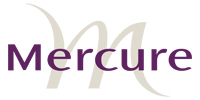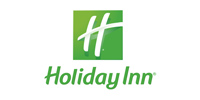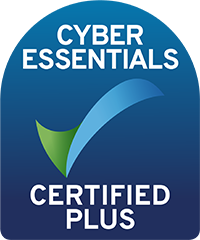Somerset Care
- Resources
- Case Studies
- Somerset Care
Background
As the size of the UK’s ageing population puts increasing pressure on Residential Care resources, providers of these services are increasingly turning to technology to help them meet their regulatory obligations while controlling their costs. We met with Keith Crockett, Assistant Director of IT and Business Systems at Somerset Care, to find out how this growing Residential Care Group is coping with the administrative burdens it faces.
Keith joined the Finance Department of Somerset Care in 1993 before moving across to the IT and Systems department. He lives in Wellington, and loves a good game of rugby.
Keith explained that Somerset Care began in 1991 as an outsourced council service to manage domiciliary and residential care. Since 1997, when SC took on Isle Care (based on the Isle of Wight), the now-private business has grown rapidly, both in size and geographical coverage — today, the group has 4,500 employees and covers a large area of the country. With an average of 70-80 staff employed at each site, he agreed it was no surprise that the business of paying people and getting shift patterns right is very high on the agenda.
Keith Crockett
Assistant Director of IT
Somerset Care
Somerset Care operates a variable calendar, so our rotas run over a number of weeks – as you might expect, this makes it difficult to calculate correct working hours, pay rates and especially overtime.
Keith’s Finance Director was the original driver behind the idea of a Group-wide Staff-Planning system – he wanted greater head office control, more (and better) management information and increased transparency and accuracy in controlling the Group’s cost base. The “people costs” at Somerset Care are around 60-70% of overhead, so it’s vital that they’re comprehensively understood and regulated. The ultimate aim was cost reduction, but Keith stressed that qualitative information is just as important – the increased flow of operational data has enabled Somerset Care to improve both efficiency and productivity without sacrificing the quality of the care it provides to its residents.
Analysis
There are contracted hours and enhanced hours to consider for night time and weekend working, but there is also the pressure of different people performing different roles on certain shifts. Our Care Rotas always need to provide the right number of qualified people for each shift, and this needs to be reflected in the planning.
Development work began at the end of 2009 – and was completed in 2010 — and several solutions were abandoned along the way. Keith was particularly complimentary about the Thinking Software approach to development work, saying that
Thinking Software realized that the solution had to be easy for users to understand and operate – it had to be simple as well as functional.
Thinking Software's Solution
The first trial sites received Rota Horizon in 2010, and Somerset Care is now implementing Rota Horizon in all of its sites across the UK.
Keith said, “Although the development process was complicated at times, the Thinking Software team stayed motivated when the going got tough. It was sometimes quite difficult to explain exactly what we needed, but despite the pain, the project stayed on course and delivered an excellent solution that everyone likes”.
“Before Horizon was implemented, each care home managed its own rotas in its own way. Our manual systems meant that we had no consistent approach. Rota Horizon is easy for people to learn and use – you just create a shift, and then drag and drop it into place. This makes training easy, and when you’re rolling-out to multiple sites across a large geographical area, that’s an important consideration.”
What’s more, Rota Horizon has good “on-screen reports” – reports that actually look like a “shift roster” – so people see what they expect to see.
Taking the project as a whole, Keith mentioned two key drivers for implementing Rota Horizon – Standardisation and Control.
a) Standardisation Somerset Care needed a standardised approach to planning across the whole organisation, making it easier for people to work across different homes, and to ensure better information for management decisions.
“In our homes, the manager/deputy and administrator are always involved in the admin of the system. They like the fact that it makes life easier for everyone, particularly with regard to the holiday planning tab – this is a great feature which cuts out a number of manual, paper-based tasks and saves a lot of time and stress.”
b) Control “Our payroll is processed on a weekly basis, and because Rota Horizon exports information to our PayRite Payroll package, we can do the whole job in less than 2 hours now. We now have real confidence that our payroll is correct and easy to audit. Before Horizon, it took more people much longer to process – and that’s before the discrepancies and errors were dealt with – payroll queries and errors are very rare now, and just as important, our management labour cost information is correct and quick to produce.”
Keith says, “I can do nearly all of my administrative work on one screen – the main ROTA screen – and we find that the reports, which cover topics like sickness, absence, payroll forecasting and contracted hours status, make it possible for individual home managers to take charge of controlling their costs.”
We’ve enjoyed working with Thinking Software – we would certainly recommend them — and we look forward to their help in meeting our needs as we expand Somerset Care.
Book a Demo
Time & Attendance - RotaOne
Sales Enquiries
Write to us
Thinking Software
The Old Farm, Asthall Leigh
Oxfordshire, OX29 9PX
United Kingdom
Support Enquiries
Support
This email address is being protected from spambots. You need JavaScript enabled to view it.
Training
This email address is being protected from spambots. You need JavaScript enabled to view it.
Supplies
This email address is being protected from spambots. You need JavaScript enabled to view it.
Feedback
This email address is being protected from spambots. You need JavaScript enabled to view it.
Copyright © 2024 Thinking Software. All Rights Reserved.
Website Design & Development Beyond Your Brand.




































